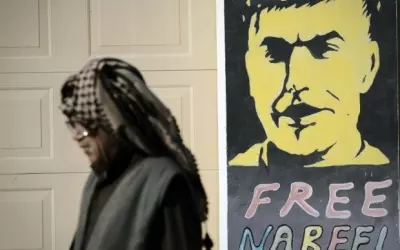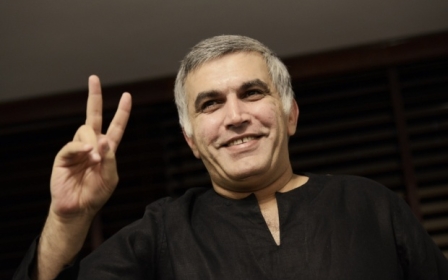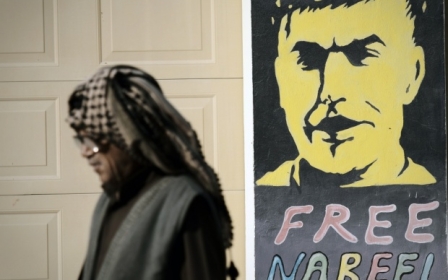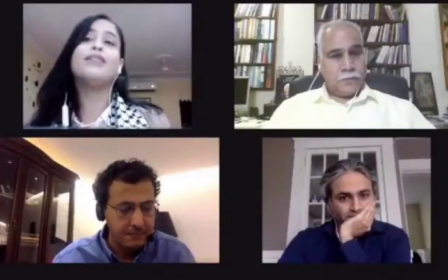Bahrain releases prominent activist Nabeel Rajab under 'severe restrictions'
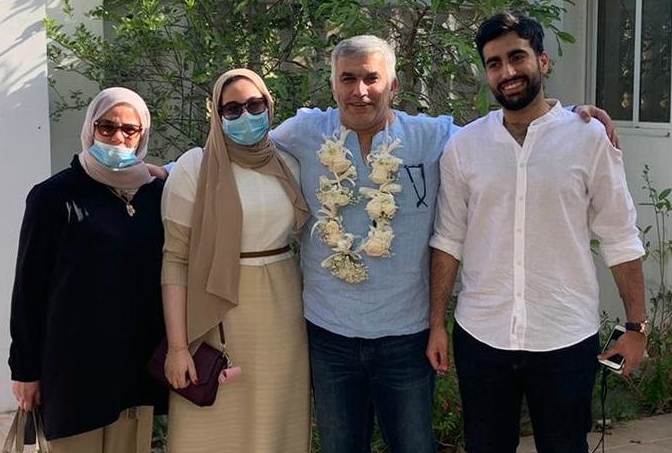
Bahrain has released prominent human rights activist Nabeel Rajab after a court agreed to pass an alternative to the jail term he is currently serving, his lawyer Mohamed Al Jishi said on Tuesday.
Rajab was released on a non-custodial sentence on Tuesday and reunited with his family after fours years in prison.
An outspoken critic of the Bahraini government, Rajab played a prominent role in pro-democracy protests in 2011.
He was last arrested on 13 June 2016, in an early morning raid on his home in the village of Bani Jamra, near the capital Manama. According to his family no reasons were given for his detention.
On 10 July 2017, he was sentenced to two years in jail after a court found him guilty of "disseminating false news, statements and rumours about the internal situation of the kingdom that would undermine its prestige and status", according to a judicial source.
Rajab is currently serving a five-year sentence, handed down in February 2018, over social media posts criticising Saudi Arabia's air strikes in Yemen.
Sayed Ahmed Alwadaei, director of advocacy at the Bahrain Institute for Rights and Democracy (Bird), said the news had come “out of the blue”.
“For me, as someone who is a friend with Nabeel, it’s just like my heart is overjoyed, to see his smile, to see his face, to see him with his family is an incredible moment,” he told Middle East Eye.
“It’s a great feeling. Everyone in the country was waiting for this moment.”
Alwadaei pointed out that Rajab still remained under “severe restrictions”, but said it was the first time that Bahrain had released such a “high-profile individual” in the context of the coronavirus outbreak.
'The time to release all prisoners is now'
Speaking to MEE, Maryam Al-Khawaja, a Bahraini human rights activist, said: "It’s great news that prominent human rights defender Nabeel Rajab has been released from prison.
"It is, however, important to point out that he and many others like him should have never been imprisoned to begin with.
"During a time when one of the most dangerous places to be during a pandemic is prison, we have called time and time again for the release of prisoners.
"What needs to change in Bahrain is not just the imprisonment of activists and human rights defenders, and people who practice their rights to freedom of expression and assembly, but a change within the system that criminalises those actions.
"Should the system remain the same, there is no guarantee that a human rights defender like Rajab will remain free. The time to release all prisoners is now."
Pro-democracy leader
Rajab had been one of the leading figures in the 2011 pro-democracy protesters that took place in Bahrain as part of the wave of Arab Spring demonstrations that took place across the region.
His importance in the movement, which although cross-sectarian was largely led by the country's Shia majority who have long complained of marginalisation, was such that the Atlantic magazine described him as "the de-facto leader" of the 2011 uprising.
As a human rights activist with a number of monitoring organisation since the early '90s, Rajab had faced repeated harassment from the Bahraini authorities.
In 2005, he suffered spinal and head injuries after being beaten by police during while attending a demonstration against unemployment.
Rajab spent two years in jail between July 2012 and May 2014, on charges including "involvement in illegal practices and inciting gatherings and calling for unauthorized marches through social networking sites".
In an interview given to MEE shortly after his release in August 2014, Rajab said that the abuses carried out himself and other activists since 2011 had drawn public attention to the autocratic nature of the Bahraini state:
"The international community have realised we are living in a dictatorship in terms of laws, in terms of measures, all institutions," he said.
"It is very clear to the public opinion and international community that there is a country that discriminates and marginalises their indigineous population and does not have a system that respects human rights."
Two months after being interviewed by MEE in London, Rajab was again arrested after returning to Bahrain.
Aya Majzoub, Bahrain researcher at Human Rights Watch, told MEE that while Rajab's release was welcome, there were still many other human rights activists lingering in the kingdom's jails who needed to be released.
"For several years now, Bahrain has been waging a campaign of repression against anyone criticising the government," she said.
"While releasing Nabeel is a huge welcome, we are concerned about the continued detention of other prominent human rights defenders and human rights activists who should not have been imprisoned in the first place."
Middle East Eye delivers independent and unrivalled coverage and analysis of the Middle East, North Africa and beyond. To learn more about republishing this content and the associated fees, please fill out this form. More about MEE can be found here.


